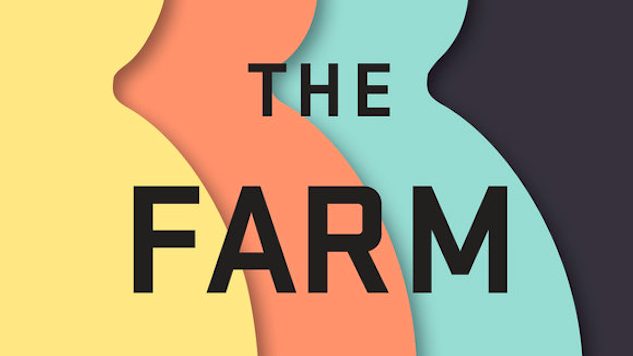Surrogacy Takes a Dystopian Turn in Joanne Ramos’ Debut Novel The Farm

Living under modern capitalism is like navigating a labyrinth disguised as a corn maze. We’re told that we can use our wits and talents to make it through, but in reality, there are infinite ways to mess up and few ways to make it out alive. In her debut novel, The Farm, Joanne Ramos drops women into the tangle and offers them a possible way out—albeit one that demands forfeiting their rights.
At the urging of her cousin named Ate, Filipina immigrant Jane takes a job babysitting for an affluent family. But the divorced mother of one makes a mistake and is fired, leaving Jane without prospects until Ate suggests applying for a job at Golden Oaks, an upscale surrogacy service that provides hired wombs for the ultra-wealthy. Promised a hefty paycheck and having passed a competitive screening process, Jane signs on, only discover that Golden Oaks is more of a luxury prison than an empowering destination for high-end maternal care.
 Run by an ambitious woman named Mae, Golden Oaks functions as an incubator for the perfect child. The site is reminiscent of corporate feminist spaces like The Wing or Tia; the provided maternity clothes are cashmere, the food is calibrated to be unfailingly healthy. But the women, called Hosts, are watched by Coordinators and a video system in all common areas. They’re also not permitted to leave Golden Oaks once they arrive on site a few weeks pregnant, so Jane is forced to leave her nearly one-year-old daughter with Ate. Lisa, a repeat Host rankled by the system, nicknames Golden Oaks “The Farm” after the pressure to grow babies.
Run by an ambitious woman named Mae, Golden Oaks functions as an incubator for the perfect child. The site is reminiscent of corporate feminist spaces like The Wing or Tia; the provided maternity clothes are cashmere, the food is calibrated to be unfailingly healthy. But the women, called Hosts, are watched by Coordinators and a video system in all common areas. They’re also not permitted to leave Golden Oaks once they arrive on site a few weeks pregnant, so Jane is forced to leave her nearly one-year-old daughter with Ate. Lisa, a repeat Host rankled by the system, nicknames Golden Oaks “The Farm” after the pressure to grow babies.
Ramos tackles race and class throughout the novel, which is told through multiple perspectives: Jane, Ate, Mae and Reagan, Jane’s roommate and a Premium Host due to her being a white (Clients pay more for light-skinned Hosts), educated and conventionally attractive woman. Jane, who has worked and lived among New York’s immigrant community, is uncomfortable being waited on by the Golden Oaks staff. She’s hyper-aware of how she could be viewed as either lazy for leaving her own belongings in disarray or as a thief if one of Reagan’s things go missing. Meanwhile, Reagan’s guilt about her own privilege motivates her actions, and Lisa breaks rules with a sense of entitlement that puts others in danger of losing the economic windfall they stand to gain.
Using reproductive health as a means to explore dystopian themes is nothing new, but Ramos utilizes a different angle than Leni Zumas’ Red Clocks or Margaret Atwood’s The Handmaid’s Tale. The true villain in The Farm is capitalism and the false choices it offers to those clawing their way to a better future. The women drawn to Golden Oaks are seeking a freedom that only money in huge sums can provide; although, given the nature of the job, some couch their desire for money in rhetoric about the joy of giving someone else a chance at parenthood.
Golden Oaks markets itself to potential Hosts as a once-in-a-lifetime opportunity, and it is. The hundreds of thousands of dollars that might be waiting for a Host at the end of their contract would be life-changing to the majority of Americans. Golden Oaks offers a choice that isn’t a choice at all, given the alternatives. To throw away such an opportunity is to take a gamble that someone like Jane, with no college degree and limited work experience, can’t afford. So she is forced to sign over her rights—to privacy, to see her daughter, to her own body—for almost a year. The body becomes a commodity around which profit is maximized, while the person to whom the body belongs is a nuisance to be managed through manipulation.
Subtle and at times thrilling, The Farm is a dystopia born of the world in which we live. It feels anything but removed from our current reality; Golden Oaks could easily spring from our culture’s gig economy and the uber-wealthy class willing to outsource work. If we live in a world where money is the ultimate palliative against life’s struggles, where do we draw the line between what should and shouldn’t be viewed through the lens of a profit margin?
Bridey Heing is a freelance writer based in Washington, DC. More of her work can be found here.







































